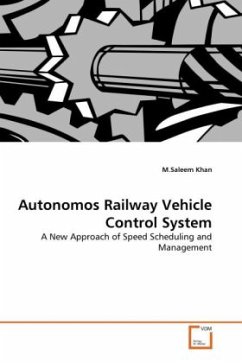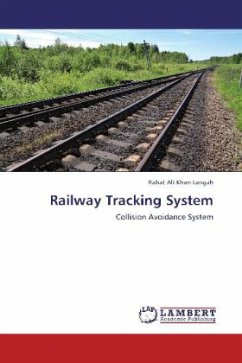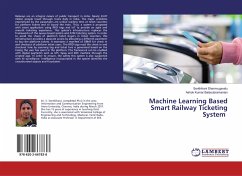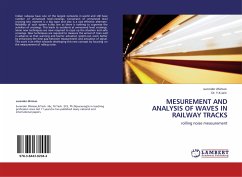In order to meet the modern trends for railway vehicle control system, various techniques have been launched in last few decades. The structural change in control system is still a dire need to improve the system in under developed countries. This design work proposes a new approach to the Railway Vehicle Speed scheduling and management system considering the hard conditions: junction track condition JTI, track clearance TC, and crossing gates condition TC and the flexible conditions: environment monitoring EM, track condition TC, and vehicle tilting condition VT. This system also considers the track vehicle to vehicle and between vehicle and main control information exchange, point pre-loaded information about vehicle root at the starting position is selected and other information is allowed to be loaded into the control system memory by the control room. The initial information includes start time, speed schedule, position of stopping stations, locations of junction track change and crossing gates, and track condition information. This approach will enhance the capability of vehicle control system in automation.
Bitte wählen Sie Ihr Anliegen aus.
Rechnungen
Retourenschein anfordern
Bestellstatus
Storno







![Private Mining and Metallurgical Telegraphic Cipher Code of the Canadian Pacific Railway [microform] Private Mining and Metallurgical Telegraphic Cipher Code of the Canadian Pacific Railway [microform]](https://bilder.buecher.de/produkte/65/65532/65532159m.jpg)
